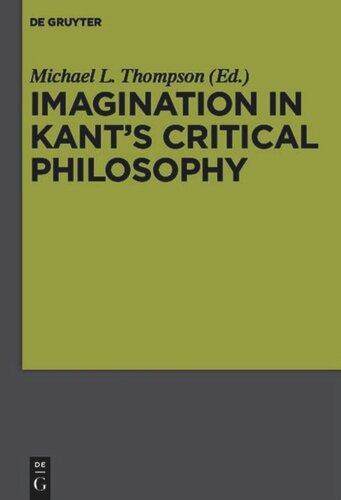

Most ebook files are in PDF format, so you can easily read them using various software such as Foxit Reader or directly on the Google Chrome browser.
Some ebook files are released by publishers in other formats such as .awz, .mobi, .epub, .fb2, etc. You may need to install specific software to read these formats on mobile/PC, such as Calibre.
Please read the tutorial at this link: https://ebookbell.com/faq
We offer FREE conversion to the popular formats you request; however, this may take some time. Therefore, right after payment, please email us, and we will try to provide the service as quickly as possible.
For some exceptional file formats or broken links (if any), please refrain from opening any disputes. Instead, email us first, and we will try to assist within a maximum of 6 hours.
EbookBell Team

4.8
34 reviewsKant's critical philosophy is rife with conflicting and aporetic doctrines. Amongst several difficult doctrines, one of the most salient and obscure discussions surrounds Kant's view of the imagination, Einbildungskraft. One finds Kant's initial discussion of the imagination in the section entitled the Transcendental Deduction in his Critique of Pure Reason; by Kant's own admission, the section that cost him the most labor.
Instrumental in these most critical passages is Kant's discussion of the imagination, but, due to revisions and emendations and a seeming change in doctrine from the 1st to the 3rd Critique, Kant's considered view of the imagination remains unclear. Many scholars eschew the discussion altogether, considering it arcana of an obsolete faculty pyschology. Even prominent Kant scholars have typically overlooked or marginalized pivotal sections in Kant's works in order to avoid dealing with this issue. Recently, however, a new interest in the imagination has resurfaced.
This volume is a collection of essays that addresses the many uses of imagination throughout Kant's entire critical corpus, and intends to gain a better understanding of this lacuna.